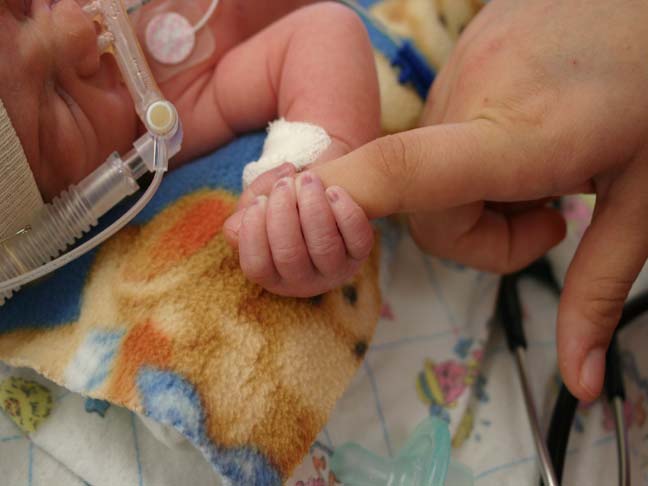Having a clear understanding about what you can expect may help to channel the panic into being a proactive advocate for your baby. For any parent, the unknown can be terribly troubling, but learning how you can play an active role in your baby’s care may help to empower you as you begin your journey towards bringing your baby home.
For Cortney Gibson and Lisa Stipe, preparing parents for the possibility that their baby may spend some time in the NICU is part of their job. “While the parents of 28 week triplets are going to have a totally different experience from the parents of a 36 week singleton” says Gibson, newborn care specialist, co-founder of the Baby Dream Team, and owner of Gibson Newborn Services, there are some important things that all expecting parents should know about the NICU and what you can expect should your baby have to spend some time there.
Life in the NICU
“Life in the NICU is often ‘two steps forward and one step back,’” says Lisa Stipe, newborn care specialist and owner of Nanny for Newborns. Both Stipe and Gibson urge parents to not be afraid to ask questions or to voice their concerns. “You are your baby’s advocate, so don’t feel bad about asking the medical staff to accommodate your needs. For example, you can ask to move your little one to another area if your baby’s neighbor has a lot of noisy visitors, ask to cover the isolette with a blanket to block light, or ask for a different nurse” says Gibson. Stipe agrees and insists parents “ask as many questions as it takes to understand everything they want to know.” And don’t be afraid to track down your baby’s primary caregiver. “Try to get one-on-one time with your doctor or neonatologist, even if you need to have him or her paged. If the NICU is in a teaching hospital, you’ll want to pay close attention to who is overseeing the care of your baby. If a resident makes you uncomfortable, ask for an attending physician” advises Gibson. She also advises parents to take care of themselves and to pace themselves so they are able to help care for their babies. “Stay hydrated, don’t forget to eat, and use yoga, meditation, or prayer to center yourself.”
A Roller Coaster
“The NICU is a constant roller coaster and things change (for good and bad) by the minute. The highs and lows take an emotional, physical, and spiritual toll on parents” says Gibson. While alarms sounding can be very startling and scary, Stipe reminds parents that they don’t always mean the worst. Many babies are often too sick to be handled by their parents when in the NICU, so it’s important to find other ways to bond. While this is troubling for parents, Gibson urges them to remember that the medical staff is doing everything possible to help their baby grow and get better. If you are permitted to touch but not hold your baby, Gibson recommends that in addition to softly talking and singing to your baby, using the power of touch by gently placing your hands on or around your baby while he or she is in the covered isolette. Hanging pictures and signs by your baby and bringing our own clothes for your baby for when she’s able to be dressed are also recommended by both Gibson and Stipe. If your baby is well enough to be held, Stipe urges parents to engage in Kangeroo care, which is holding your diapered baby bare chest to bare chest. This method of care has been effective in helping babies gain weight, grow and progress towards better health.
The End Goal
When it comes to the NICU, it’s everyone’s goal for parents to bring home a healthy, thriving baby. Being as active as possible in your baby’s care and serving as her advocate can assure you’re doing your part. If you’re feeling overwhelmed, ask for help. In taking care of your baby it’s vital that you still take care of yourself.
